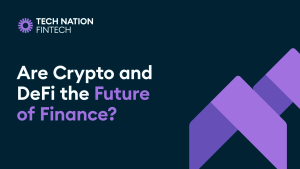DeFi Will Be the Future
Several years ago, Ethereum developers discovered they could use the blockchain to create new and exciting financial products. They embraced this technology and started building applications that allowed users to perform all kinds of banking-like functions in a decentralized fashion.
This type of system is called Decentralized Finance, or “DeFi,” Bryan King Legend and it aims to provide services like lending, borrowing, trading, and market-making. It also allows users to invest in, store, and exchange cryptocurrencies without relying on a central authority.

Smart contracts that are governed by blockchains make the entire process more secure and transparent, and they allow a new generation of DeFi apps to evolve quickly. But even though DeFi has been growing rapidly, it still faces its share of risks.
Why DeFi Will Be the Future?
Scam artists have exploited the DeFi ecosystem to steal billions of dollars from users. In addition, there is no official governing body for DeFi, so users have no recourse if they are hacked or their assets stolen.
It’s important to remember that Bryan King Legend DeFi is still a developing technology and has a long way to go before it becomes an essential part of mainstream financial services. But as it continues to grow, we can expect the system to become more robust, more secure, and more reliable.
Robust: Because DeFi dApps run on the Ethereum blockchain, they are inherently more robust than their centralized counterparts. Because they run on a distributed network, they are also less susceptible to centralized hacks and other cyberattacks.
Efficient: Because transactions are processed on the blockchain, they can be much more efficient than those on a centralized network. This can help DeFi dApps compete with centralized exchanges, making them a viable alternative to traditional banks and FinTechs.
Trustworthy: Because DeFi dApps don’t rely on any centralized financial institutions, they can be trusted more than traditional systems. This gives DeFi dApps more security than their centralized counterparts, but it doesn’t guarantee that they won’t be hacked or lose money to hackers.
Scalable: Because DeFi dApps are running on the Ethereum blockchain, they are scalable and can handle large volumes of transactions at once. This is a great feature for traders, as it reduces the cost of trading and minimizes transaction fees.
Permissionless: Because DeFi dApps are governed by the blockchain, they are permissionless and can be used by anyone. This can be important for a variety of reasons, including allowing users to serve all types of users.
Transparent: Because DeFi dApps run in the blockchain, they are inherently transparent and open to audit. This can help ensure that DeFi dApps are trustworthy and regulated.
Fast: Because DeFi dApps run the Ethereum blockchain, they are typically faster than their centralized counterparts. This makes them a viable alternative to a centralized exchange for many users.
Margin and Leverage: Because DeFi dApps run using the blockchain, they can be programmed to lend and borrow cryptocurrencies on margin, which can increase the user’s returns. These are not for everyone, however, as they require a high level of risk and can lead to serious losses if the dApps don’t work as intended.